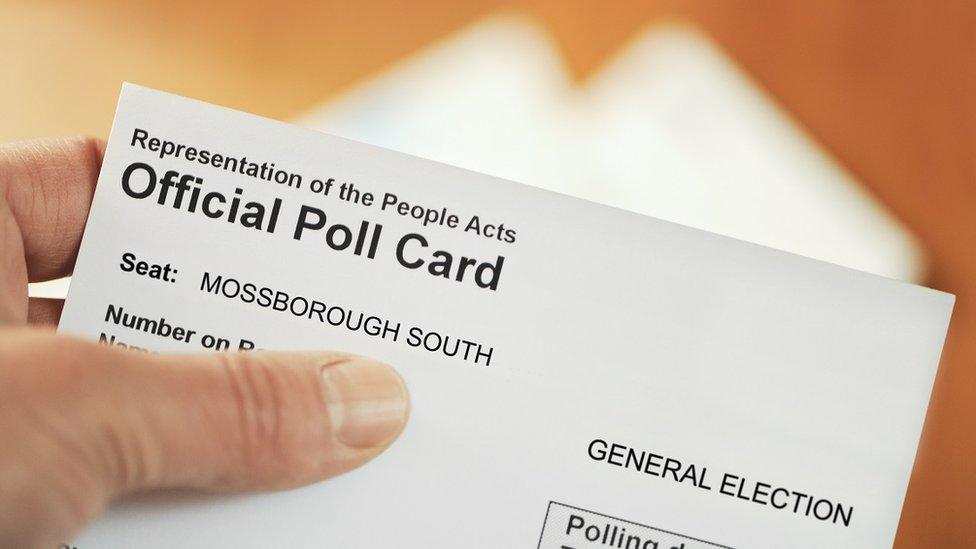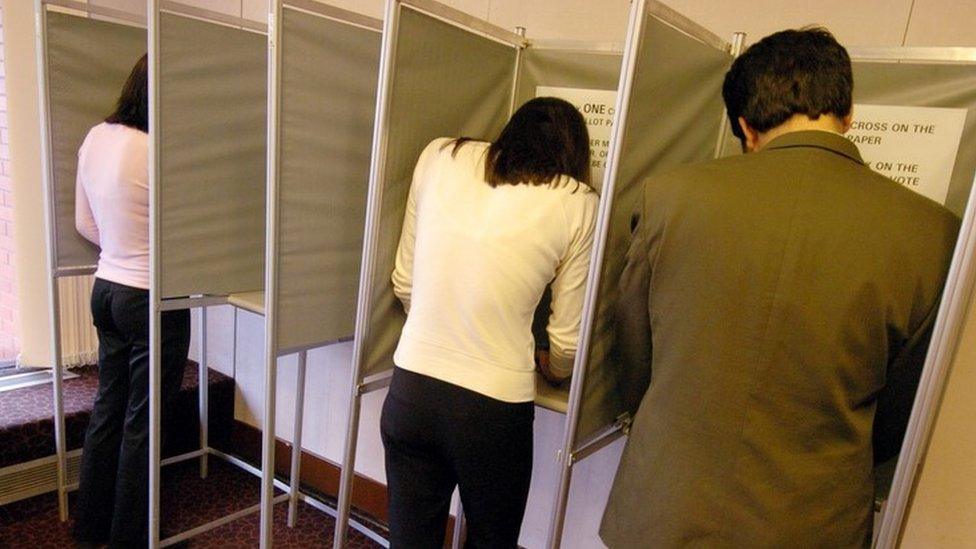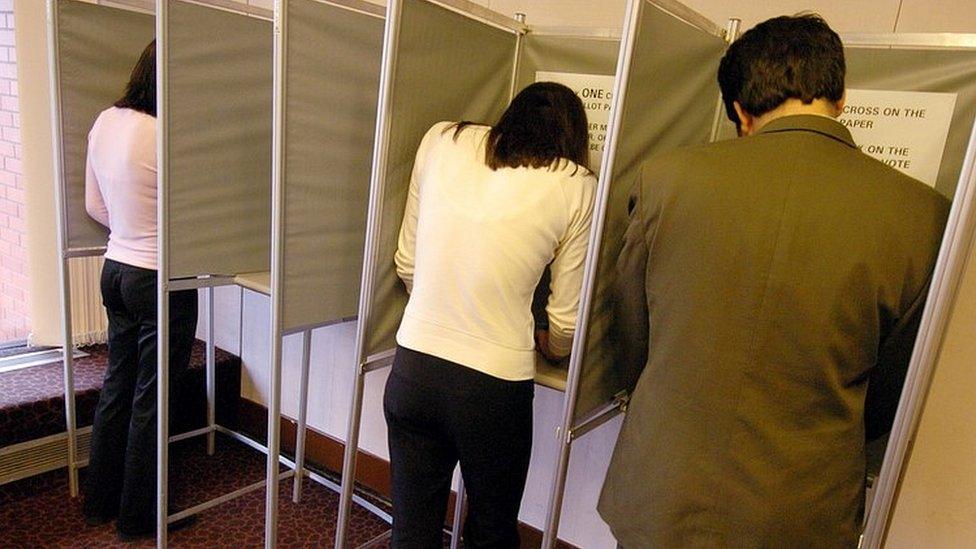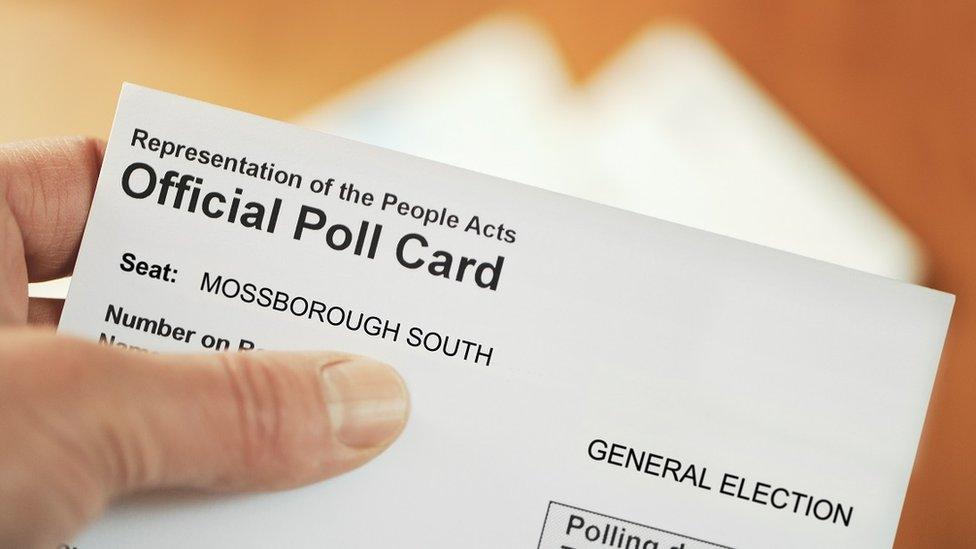Voter ID trials ruled lawful by appeal judges
- Published

Voter ID pilots were announced by the Government in 2018 and were tested out in the most recent general election
Court of Appeal judges have rejected a legal challenge over voter ID trials in last year's local elections.
Ten local authorities took part in pilots at elections in May 2019, with voters asked to meet ID requirements to be able to cast their vote.
Neil Coughlan, 66, from Witham in Essex, crowdfunded legal action against the Government, arguing the pilots would prevent people from voting.
But in a ruling on Friday, three senior judges dismissed his appeal.
'Henry VIII powers'
The pilots, announced by ministers in 2018, were run by the Government with a view to rolling out voter ID nationwide in future elections.
In the judgment, Lord Justice McCombe, sitting with Lords Justice Underhill and Green, said Mr Coughlan, a former district and town councillor, said he believed requirements for identification of voters at elections "tend to disenfranchise the poor and vulnerable and render it less likely that their electoral voices will be heard".
However, he said the use of the power to test voter ID in a pilot scheme did not override the right to vote at all.
"Clearly, the right to vote at any election is an important right and courts will be vigilant to prevent the use of so-called 'Henry VIII' powers of this type by ministers to curtail such an important right by mere order, unless the claimed use of the power has been clearly and distinctly conferred by Parliament," Lord Justic McCombe said.
Lord Justice Underhill said while he understood Mr Coughlan's concerns, part of the purpose of the pilots was to establish whether there would be such an impact, and to what extent.
He also said there were "significant safeguards" because any scheme would have to be recommended by the Electoral Commission and then be approved by Parliament.
The scheme was first ruled lawful in March last year.
At the Court of Appeal in April Mr Coughlan's lawyers argued the trials were unlawful because they went beyond the legal powers granted to ministers under the Representation of the People Act 2000, which sets out rules on the way elections are run.
The scheme was trialled in Pendle, Woking, Broxtowe, Derby, North Kesteven, Braintree, Mid Sussex, Watford and North West Leicestershire - two other councils pulled out.
In a statement after the ruling, Minister for the Constitution & Devolution Chloe Smith said: "Showing ID to vote is a reasonable approach to combating the inexcusable potential for voter fraud in our current system and strengthening its integrity."
Related topics
- Published17 April 2019

- Published27 December 2016

- Published28 April 2018

- Published20 March 2019
